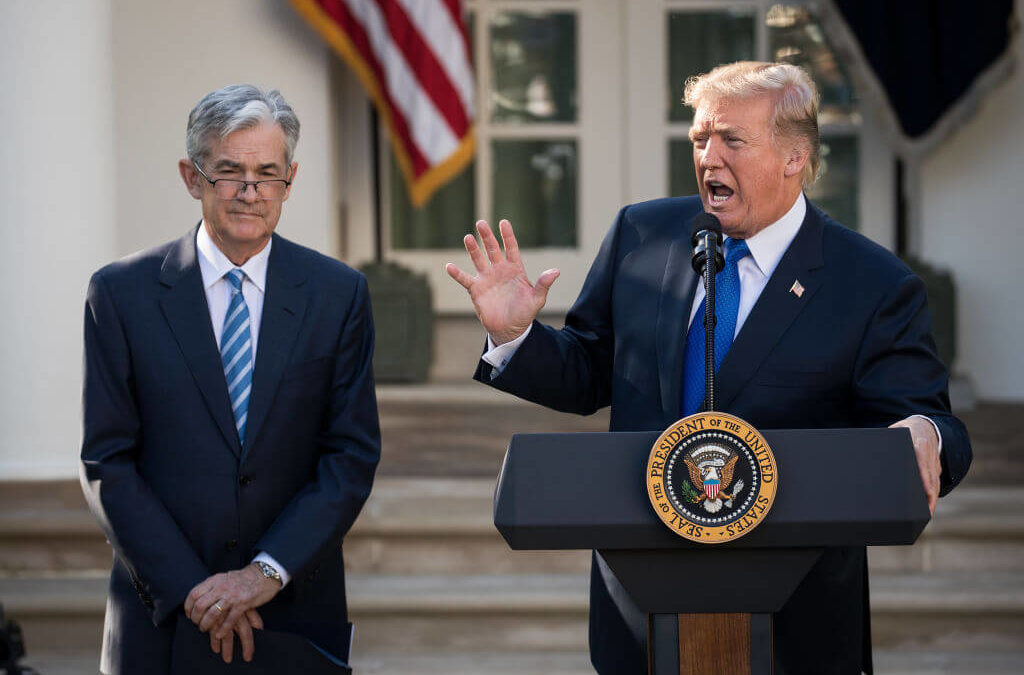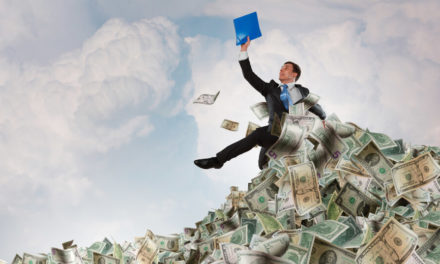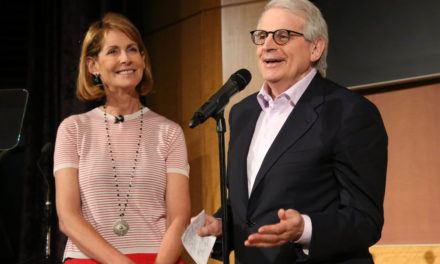“The Fed has gone crazy.
“My biggest threat is the Fed because the Fed is raising rates too fast.
If the U.S. starts to slow like its major economic partners, he’s going to lose the 2020 election before anyone has time to “win” a trade war.
“Every time we do something great, he raises the interest rates.
“He was supposed to be a low-interest-rate guy. It’s turned out that he’s not.”
These are all quotes from U.S. President Donald Trump concerning the Federal Reserve and ultimately its chair, Jerome Powell — who Trump himself put in place — and its raising of interest rates.
Some of those in the know say Trump has gone too far in his criticisms, particularly former Fed chair Janet Yellen, because the Fed should maintain its independence in order to keep the economy afloat in times of need while battling inflation in times of prosperity.
But there are other who say the president is correct, the latest of which is the Wall Street Journal in a recent op-ed.
President Trump’s biggest achievement has been the revival of faster U.S. economic growth, but past performance is no guarantee of future results. The White House should be worried about growing economic strains in the rest of the world, and policy makers need to prepare. The U.S. is not an island.
No moat can protect the U.S. economy, and they need to adapt.
Start with the Fed, which should rethink its December rate increase. No other major central bank is likely to raise its rates soon. The Fed needs to weigh whether it should expand the gulf between U.S. and foreign monetary policies at a fragile moment as global investors demand more dollars.
Mr. Powell will be wary of seeming pliable amid Mr. Trump’s demands for lower rates, but tighter credit conditions and low inflation support a pause independent of Mr. Trump’s bluster. Now is not the time for a doctrinaire march toward “normalcy,” which the Fed can resume in 2019 if the data warrant.
Where the Wall Street Journal credits Trump for his instincts regarding the Fed and its raising of rates, it said he will take the blame if the ongoing trade war, particularly with China, stalls the economy.
Mr. Trump should also settle his trade tempests. He wants Germany to export less, and look at the result after a quarter of soft auto sales abroad. Trade uncertainty is weighing on business investment much as Barack Obama’s regulatory assaults did. If you’re a CEO and don’t know how global supply chains will be affected by tariffs or new trade deals, you delay investment.
Mr. Trump’s steel tariffs are still hitting Mexico and Canada even after the revised Nafta deal, and his 25% car tariff reappears now and again like Freddy Krueger. Adviser Peter Navarro suggested a long trade war with China last week, and stocks promptly sold off.
Mr. Trump claims the U.S. economy is strong enough to ride out his trade wars. Well, how lucky does he feel? Last week the President suffered a bruising midterm election defeat even with a strong economy. If the U.S. starts to slow like its major economic partners, he’s going to lose the 2020 election before anyone has time to “win” a trade war.
This month’s G-20 summit is a chance for Mr. Trump to show some economic statesmanship and look for a trade truce. This needn’t be a show of weakness as he can continue negotiations to press market reforms abroad on China’s intellectual-property theft or Europe’s tax assaults on American tech companies. But he needs to signal that the U.S. won’t continue punitive tariff attacks on allies.
With his polarizing political style, Mr. Trump even more than most Presidents will succeed or fail based on economic results. He should appreciate that a recession in the rest of the world is a threat to the U.S. economy and his Presidency.




